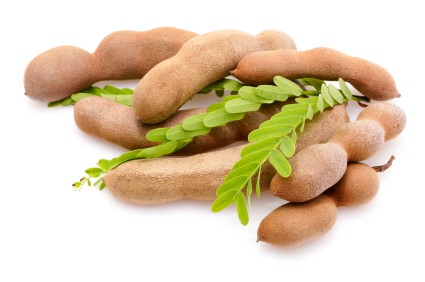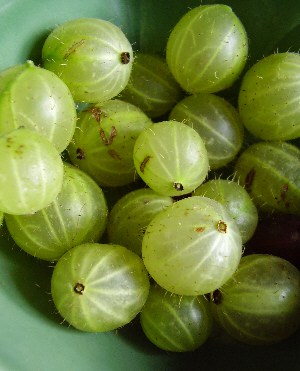Cranberries are a group of evergreen dwarf shrubs or trailing vines in the genus Vaccinium subgenus Oxycoccos, or in some treatments, in the distinct genus Oxycoccos. They are found in acidic bogs throughout the cooler parts of the Northern Hemisphere.
Cranberries are low, creeping shrubs or vines up to 2 m long and 5 to 20 cm in height; they have slender, wiry stems that are not thickly woody and have small evergreen leaves. The flowers are dark pink, with very distinct reflexed petals, leaving the style and stamens fully exposed and pointing forward. They are pollinated by domestic honey bees. The fruit is a berry that is larger than the leaves of the plant; it is initially white, but turns a deep red when fully ripe. It is edible, with an acidic taste that can overwhelm its sweetness.
Cranberries are a major commercial crop in certain American states and Canadian provinces (see cultivation and uses below). Most cranberries are processed into products such as juice, sauce, and sweetened dried cranberries, with the remainder sold fresh to consumers. Cranberry sauce is regarded an indispensable part of traditional American and Canadian Thanksgiving menus and European winter festivals.
Since the early 21st century within the global functional food industry, there has been a rapidly growing recognition of cranberries for their consumer product popularity, nutrient content and antioxidant qualities, giving them commercial status as a “superfruit”.
Benefits of Cranberries
- Improve the body’s circulatory system.
- A daily glass of cranberry juice will treat diseases like cystitis.
- Provide relief for asthma patients.
- Condensed tannins in cranberries can inhibit the oxidation of bad cholesterol and as a result protects body against atheroscelrosis.
- Tannins are also considered an important contributor to a healthy heart.
- Acts as bactericide and affects the acidity of the urine. In effect, it disrupts the development of kidney stone formation.
Maximising the benefits
Condensed tannins which are found in cranberries are not destroyed in cooking. These tannins are powerful antioxidants.

